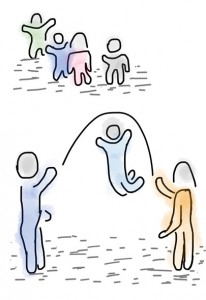
We are thrilled to be at the 2022 American Anthropological Association annual meeting (Seattle, November 9-13). We’re marking the occasion with some very special prices and free access to selected journals.


We are thrilled to be at the 2022 American Anthropological Association annual meeting (Seattle, November 9-13). We’re marking the occasion with some very special prices and free access to selected journals.
Our growing collection of Open Access content is available to meet your remote learning and online teaching needs during these trying times. Berghahn Journals invites you to share this list with your students and colleagues.
Continue reading “Berghahn Journals Open Access”
Emma Pearce, Kathryn Paik and Omar Robles
Making It Up: Intergenerational Activism and the Ethics of Empowering Girls
Emily Bent
The Ethics of Representing Girls in Digital Policy Spaces
Emily Anderson
Suzanne Dunn, Julie S. Lalonde and Jane Bailey
A Brief History of Childhood in Boir Ahmad, Iran
Erika Friedl
Conflicts in Children’s Everyday Lives: Fresh Perspectives on Protracted Crisis in Lebanon
Erik van Ommering
“I Love You, Guys”: A Study of Inclusive Masculinities among High School Cross-Country Runners
Luis Morales and Edward Caffyn-Parsons
The Biologically Vulnerable Boy: Framing Sex Differences in Childhood Infectious Disease Mortality
Heather T. Battles
Victoria Cann and Erica Horton
Natasha Anand
Boyhood Studies
An Interdisciplinary Journal
Volume 10, Issue 1
With the theme of “Male Youth Sports: Changing Contexts and Emergent Perspectives,” this special issue presents contributions about boys in global sports contexts from fields as diverse as the history of sport, sport sociology, and sport psychology.
Continue reading “Berghahn Journals: New Issues Published in May”
NEW IN 2015:
Boyhood Studies
Volume 8, Issue 1
The journal continues Thymos: Journal of Boyhood Studies, seven volumes of which were published between 2007 and 2013 by The Men’s Studies Press. As originally envisioned in Thymos, we hope that Boyhood Studies will be of help in making sense of all the awards, nominations, views, comments, and criticism that boy culture is able to elicit. What analytic gaze do boys, young and older, deserve? What spectacle do they present to the observing eye, beyond that of the remnants or ruins of patriarchy? What do boys need from teachers, parents, friends, and loved ones? What are the latter asking of the boy? Historical, anthropological, and practice-based contributions are all are all needed to answer these global questions.
Continue reading “Hot Off the Presses – New Journal Issues Published in August”
Continue reading “New and Notable Titles from Berghahn Books & Journals”